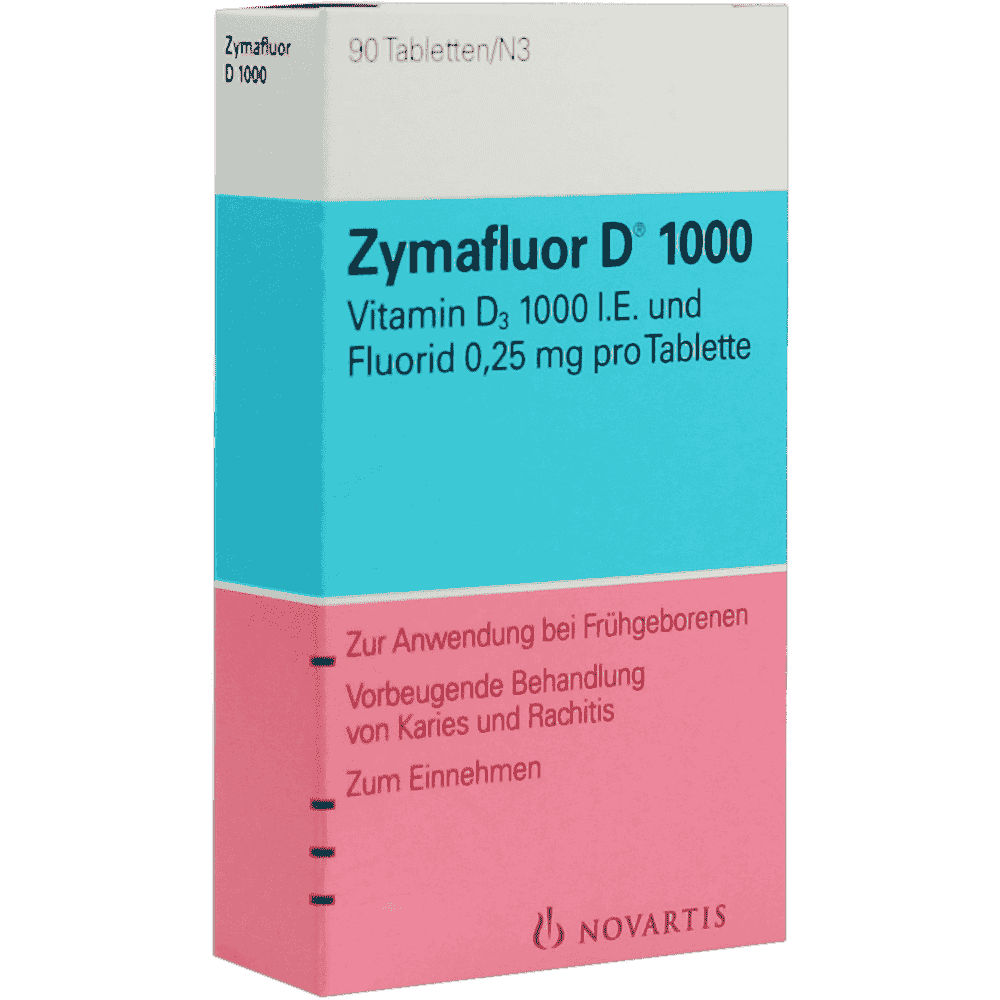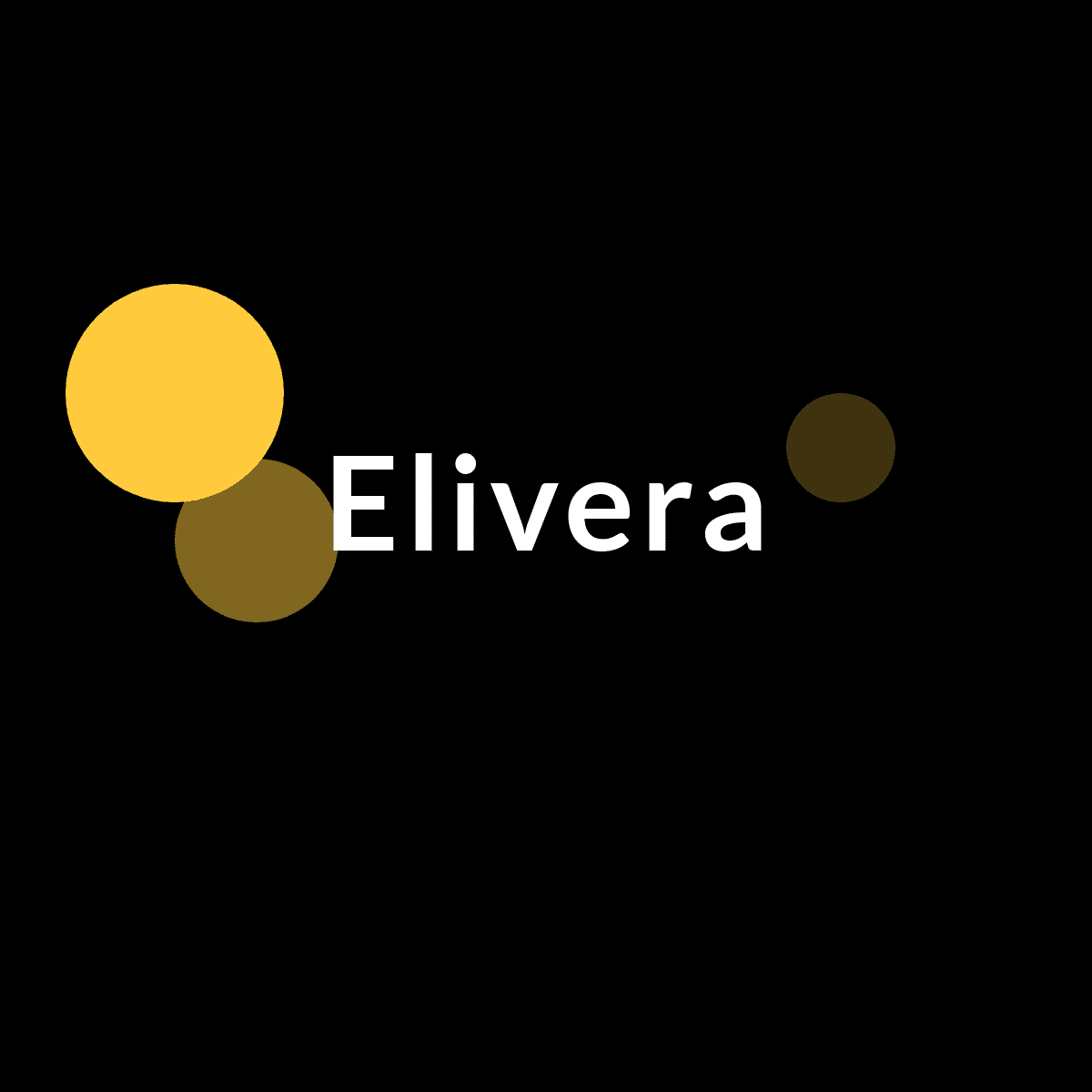MEDA Pharma GmbH & Co. KG
ZYMAFLUOR D 1,000, Vitamin D3, fluoride
ZYMAFLUOR D 1,000, Vitamin D3, fluoride
Regular price
£27.37 GBP
Regular price
£50.00 GBP
Sale price
£27.37 GBP
Unit price
per
Tax included.
Shipping calculated at checkout.
Couldn't load pickup availability
Zymafluor D® 1000 tablets, Vitamin D3, fluoride
Vitamin D3 1000 IU and fluoride 0.25 mg per tablet
Areas of
application:
Zymafluor D 1000 for the preventive treatment of tooth decay and rickets in premature babies.
Note: Contains lactose and sucrose.
For the preventive treatment of rickets and tooth decay in premature babies With vitamin D.
active ZYMAFLUOR D 1,000, Vitamin D3, fluoride ingredients
- 0.03 mg cholecalciferol
- 0.55 mg sodium fluoride
ZYMAFLUOR D 1,000, Vitamin D3, fluoride excipients
- lactose-1 water
- cellulose, microcrystalline
- crospovidone
- Beef gelatin
- sucrose
- cornstarch
- magnesium stearate
- Silica, colloidal
- Saccharin sodium-2 water
- vanillin
- Soybean Oil, Refined
- DL-α-tocopherol
- Iron(III) oxide hydrate, yellow
Indication/ ZYMAFLUOR D 1,000, Vitamin D3, fluoride Application
- The preparation is a preventive agent against tooth decay and rickets.
-
application areas
- Preventive treatment of caries and rickets in premature babies.
ZYMAFLUOR D 1,000, Vitamin D3, fluoride dosage
- Always take the medicine exactly as instructed. Please check with your doctor or pharmacist if you are not sure.
- Premature babies receive 1 tablet daily for preventive treatment.
- To ensure that only a systemic form of fluoride intake is used, the pediatrician or dentist should take into account the intake of fluoridated table salt, fluoride tablets (including the daily dose), fluoridated mineral water and the fluoride content of drinking water when recommending a dosage.
- The following dosing schedule provides guidelines for supplemental fluoride intake. If the fluoride concentration in drinking water/mineral water is more than 0.7 mg/l, additional administration of fluoride tablets is not necessary.
-
Unless otherwise prescribed, the following dosage should be observed regularly, 1 tablet or lozenge daily of the appropriate strength:
-
Age (years): 0 to < 3
-
Fluoride concentration in drinking water / mineral water (mg/l): < 0.3
- Fluoride (mg/day): 0.25
-
Fluoride concentration in drinking water / mineral water (mg/l): < 0.3
-
Age (years): 3 to < 6
-
Fluoride concentration in drinking water / mineral water (mg/l): < 0.3
- Fluoride (mg/day): 0.5
-
Fluoride concentration in drinking water / mineral water (mg/l): 0.3 - 0.7
- Fluoride (mg/day): 0.25
-
Fluoride concentration in drinking water / mineral water (mg/l): < 0.3
-
Age (years): from 6
-
Fluoride concentration in drinking water / mineral water (mg/l): < 0.3
- Fluoride (mg/day): 1
-
Fluoride concentration in drinking water / mineral water (mg/l): 0.3 - 0.7
- Fluoride (mg/day): 0.5
-
Fluoride concentration in drinking water / mineral water (mg/l): < 0.3
-
Age (years): 0 to < 3
-
duration of use
- The doctor decides on the duration of the treatment.
- If insufficient amounts of fluoride and vitamin D are ingested with food over the long term, the drug should be taken until the end of the second year of life.
-
If you give more than you should
- In the event of acute poisoning with sodium fluoride, the following symptoms may occur: gastrointestinal disorders (nausea, vomiting, diarrhea, bleeding, abdominal pain or cramps), tiredness, tremor, seizures, shortness of breath, cardiovascular symptoms (collapse, asystole).
- A chronic overdose of sodium fluoride in the first years of life can lead to dental fluorosis with enamel defects in the permanent dentition and, in the case of a very significant, long-term overdose, to bone structure disorders.
- Long-term overdose of vitamin D (from 1800 IU per day) can lead to hypercalcemia and hypercalciuria. If the requirement is exceeded significantly and for a long time, calcification of parenchymatous organs can occur.
-
If you forget to give the medicine
- If a tablet has been forgotten, the dose will be continued unchanged, ie a dose missed the day before will not be made up for.
- If the preparation has not been given for several weeks, the administration can be extended by the appropriate period of time after consultation with your doctor.
ZYMAFLUOR D 1,000, Vitamin D3, fluoride way
- Disintegrate 1 tablet at a time in a teaspoon of liquid. Then it is best to administer it directly into the mouth.
-
Notice:
- To prevent undesirable complications such as accidental "swallowing" of the tablet into the airways, the tablet should never be administered undissolved!
side ZYMAFLUOR D 1,000, Vitamin D3, fluoride effects
- Like all medicines, this can also have side effects, although not everyone gets them.
-
The evaluation of side effects is based on the following frequency information:
- Very common: more than 1 in 10 people treated
- Common: less than 1 in 10 but more than 1 in 100 people treated
- Uncommon: less than 1 in 100 but more than 1 in 1,000 people treated
- Rare: less than 1 in 1,000 but more than 1 in 10,000 people treated
- Very rare: less than 1 in 10,000 people treated
- Not known: frequency cannot be estimated from the available data.
-
possible side effects
- If used properly, no side effects are to be expected. Some excipients can very rarely cause allergic reactions.
- Please tell your doctor or pharmacist if any of the listed side effects seriously affects the child, or if you notice any side effects that are not listed.
- If you get any side effects, talk to your doctor or pharmacist. This also applies to side effects that are not specified.
ZYMAFLUOR D 1,000, Vitamin D3, fluoride interactions
-
When taken with other medicines
- Please inform your doctor or pharmacist if you are taking/using or have recently taken/used other medicines, even if they are non-prescription medicines.
- The preparation should only be given in exceptional cases as directed by a doctor together with other medicines containing vitamin D.
-
When taken with food and drink
- A simultaneous supply of calcium and magnesium, as occurs with a diet containing milk and milk products, does not significantly reduce the retention of fluoride in the organism.
ZYMAFLUOR D 1,000, Vitamin D3, fluoride Contraindications
-
The preparation must not be given
- if you are hypersensitive (allergic) to sodium fluoride, cholecalciferol or any of the other ingredients of the preparation,
- if the calcium in the blood (hypercalcaemia) or in the urine (hypercalciuria) is increased,
- if you have limited mobility (e.g. because of a plaster cast) or
- if fluorides are supplied in a different way, e.g. B. with drinking, mineral or table water.
pregnancy ZYMAFLUOR D 1,000, Vitamin D3, fluoride and breast feeding period
- This medicine is only intended for children.
patient ZYMAFLUOR D 1,000, Vitamin D3, fluoride notes
-
Particular caution is required when ingesting
- In infants born prematurely and with malnutrition, caries prophylaxis through systemic fluoride intake should only start after a body weight of 3000 g has been reached and if the physical development is normal.
-
If infants are fed with balanced diets or if their bottle feeding is made with drinking water or mineral water that contains more than 0.3 mg/l* fluoride or if the artificial baby milk is sufficiently fortified with vitamin D, the administration of the drug is not recommended. (This restriction does not apply to children who are exclusively breastfed.)
- * In the Federal Republic of Germany, the fluoride content in drinking water is - apart from a few exceptions - below 0.3 mg/l. Please ask the responsible waterworks about the fluoride content of the tap water in your community.
- The administration of fluoride tablets is not necessary for children who are on a balanced diet because of a congenital metabolic disorder.
- In the case of severe, long-term diseases that impair growth, your doctor should consider whether the drug can be given.
- If systemic fluoride intake occurs, no toothpastes containing fluoride should be used in children under the age of 3 years.
-
Driving and using machines
- Not applicable.
Materials
Materials
Shipping & Returns
Shipping & Returns
Dimensions
Dimensions
Care Instructions
Care Instructions


